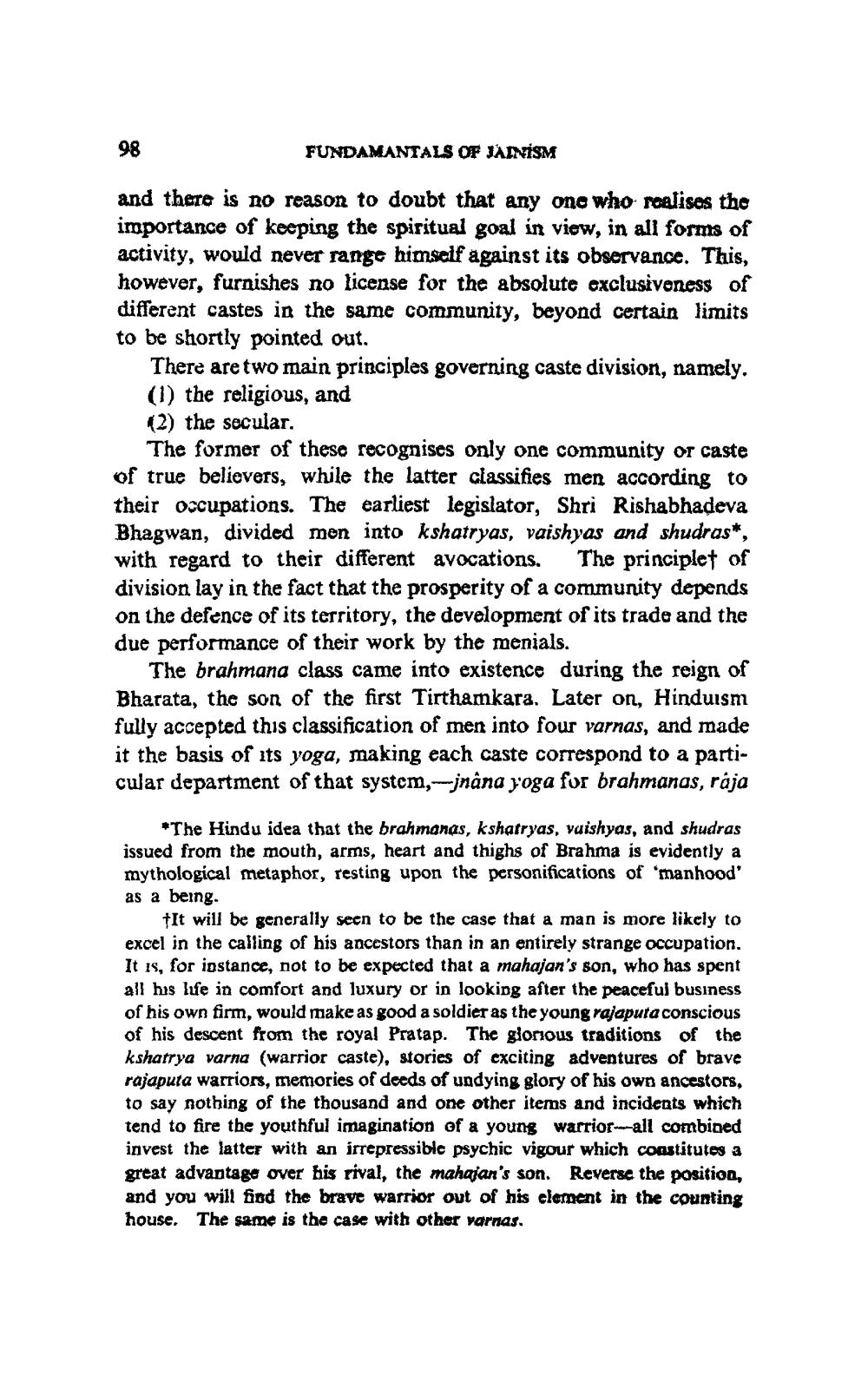________________
98
FUNDAMANTALS OF JANNİSM
and there is no reason to doubt that any one who realises the importance of keeping the spiritual goal in view, in all forms of activity, would never range himself against its observance. This, however, furnishes no license for the absolute exclusiveness of different castes in the same community, beyond certain limits to be shortly pointed out.
There are two main principles governing caste division, namely. (1) the religious, and (2) the secular.
The former of these recognises only one community or caste of true believers, while the latter classifies men according to their occupations. The earliest legislator, Shri Rishabhadeva Bhagwan, divided men into kshatryas, vaishyas and shudras*, with regard to their different avocations. The principlet of division lay in the fact that the prosperity of a community depends on the defence of its territory, the development of its trade and the due performance of their work by the menials.
The brahmana class came into existence during the reign of Bharata, the son of the first Tirthamkara. Later on, Hinduism fully accepted this classification of men into four varnas, and made it the basis of its yoga, making each caste correspond to a particular department of that system,---jnâna joga for brahmanos, raja
*The Hindu idea that the brahmanas, kshatryas, vaishyas, and shudras issued from the mouth, arms, heart and thighs of Brahma is evidently a mythological metaphor, resting upon the personifications of manhood' as a being.
It will be generally seen to be the case that a man is more likely to excel in the calling of his ancestors than in an entirely strange occupation. It is, for instance, not to be expected that a mahajan's son, who has spent all his life in comfort and luxury or in looking after the peaceful business of his own firm, would make as good a soldier as the young rajaputa conscious of his descent from the royal Pratap. The glorious traditions of the kshatrya varna (warrior caste), stories of exciting adventures of brave rajaputa warriors, memories of deeds of undying glory of his own ancestors, to say nothing of the thousand and one other items and incidents which tend to fire the youthful imagination of a young warrior-all combined invest the latter with an irrepressiblc psychic vigour which constitutes a great advantage over his rival, the mahajan's son. Reverse the position, and you will find the brave warrior out of his element in the counting house. The same is the case with other varnas.




